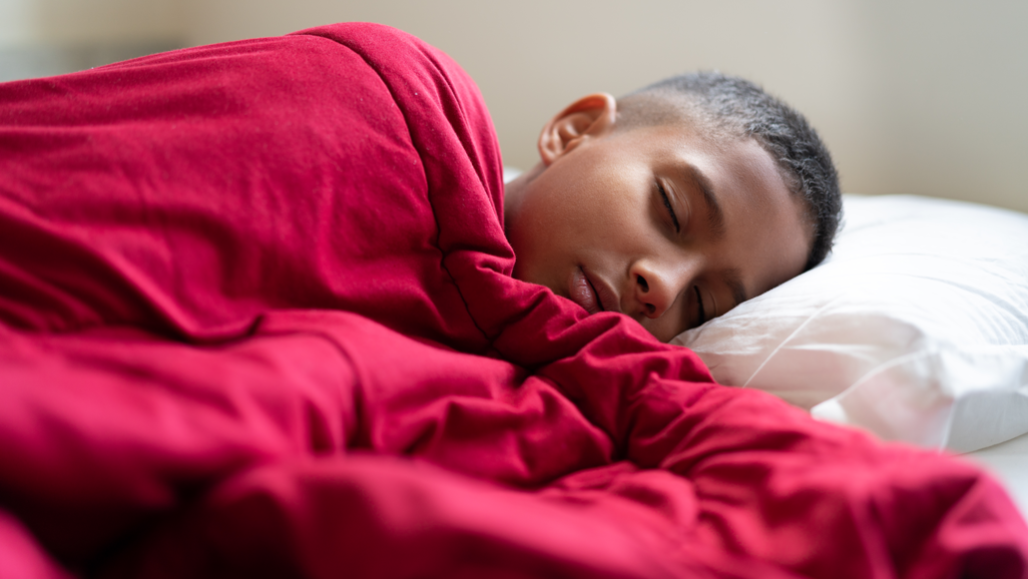Surprise! Exam scores benefit from months of regular sleep
And night-to-night consistency is at least as important as how long you snooze

Getting enough good quality sleep every night — week in and week out — is key to optimizing exam grades, a new study finds.
FG Trade/iStock/Getty Images Plus
By Jeremy Rehm
You’ve probably heard it a dozen times by now. But here it goes again: Sleep is important. Just how important? Scientists know that our weight, mental health and immune system are connected to our sleep habits. So are your grades — to a surprising degree, a new study finds.
Sleep accounted for nearly one-fourth of the difference among students’ grades in a class, it showed. So even if you spend hours studying for a test but get too little and inconsistent sleep, you might still do poorly. And boys with poor sleep habits appeared to suffer most.
The researchers reported their findings online October 1 in Science of Learning.
Many sleep studies have linked someone’s performance to sleep. Most of them had people sleep in controlled environments, such as a sleep lab. But people might sleep differently when they’re away from home. Other studies have had people report their own sleep schedules. They have found that people might fib about or not remember precisely when they slept and for how long.
Jeffrey Grossman is a materials scientist at the Massachusetts Institute of Technology in Cambridge. He wanted to test sleep in a way that better captured reality. Typically, people’s sleep schedules are messy and unpredictable. He wanted to see if the sleep links to performance held even when a study was done with people who kept such true-to-life schedules at home.
To find out, his team turned to Fitbits. These wristbands can track how long people sleep and how frequently they wake up.
The researchers recruited 100 students from Grossman’s chemical engineering class. Almost all were around 18 years old. Each got a Fitbit to wear all semester long (and to keep when the testing was over). At the semester’s end, the scientists looked at the students’ sleep data. They focused on patterns in the days and weeks before quizzes and exams. They then compared those patterns to the students’ test scores. The results confirmed sleep’s importance for students — but included some surprises.
Let’s be consistent
As expected, teens who stirred a lot during the night tended to perform poorly. The same went for those who didn’t get enough sleep. But how much someone slept the night before an exam didn’t affect that person’s grade, Grossman’s team found.
So is pulling an all-nighter before the big test okay? No, it turns out. That’s because there was a third crucial factor: consistency of sleep a week — and even a month — before an exam.
That means “a student who sleeps seven hours at night, every night, will do better than a student who sleeps 7.5 hours one night and 6.5 another night,” Grossman says. That was true even when both students got the same amount and quality of sleep.
This surprised Grossman.
The data now suggest “you should have been sleeping regularly before [the exam], because that’s going to be what really matters,” he says. This seems to touch “on the way that the brain processes information,” he concludes.
Sleep length, quality and consistency together accounted for 24.4 percent of the difference among the students’ test grades. And these factors appeared especially important for boys. Grossman’s team is not sure why. But boys who didn’t get enough sleep or regular sleep were likely to do worse on an exam than were girls who had similar sleep patterns.
“You don’t snooze, you lose,” quips Michael Scullin. He’s a sleep scientist at Baylor University. That’s in Waco, Texas. He wasn’t involved in the study but does investigate links between sleep and learning.
Few studies, as here, have been able to monitor students’ sleep for an entire semester , Scullin says. And few have tried to link changes in a person’s sleep to grades.
Though this study involved college students, “there is no age group that sleep doesn’t affect,” he adds.
Scullin thinks the biggest flaw in the study was the Fitbits themselves. “It’s important for individuals to know that if their wristband, watch or app tells them that they have terrible sleep, that may not actually be so,” he says.
The study authors also raised this point. Fitbit, Inc. made the sleep-trackers. It wouldn’t share precisely how its devices worked. This leaves questions about how accurately the device tracked a student’s sleep.
Even so, Scullin emphasizes that there are ample data supporting ties between sleep and how well someone performs. They have linked sleep with everything from excelling at sports to being friendlier. “Heck, there’s even something scientifically accurate about the notion of getting your ‘beauty’ sleep,” he notes.
Helping students get more sleep depends in part on schools starting their days later, Scullin says. But it also comes down to students making sleep a higher priority. That may require getting more sleep and limiting late evening use of phones and other screens.
Grossman agrees. Even with extracurricular activities, schoolwork and a social life, you need to “get your sleep,” he says.







